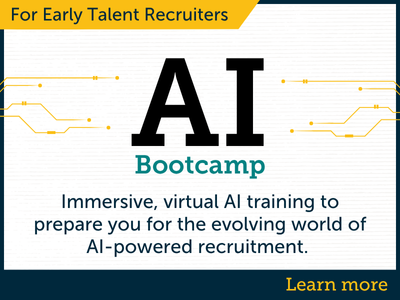Spotlight for Career Services Professionals
There is simply no way to know at this juncture what the impact of virtual recruiting platforms and tools will be, either in the short or longer term, explains Mary Scott, president of the Scott Resource Group, in Succeeding in the New Normal: Student Attitudes and Effective Virtual Recruiting.
Virtual recruitment platforms and tools, Scott notes, will no doubt provide a way to replicate the transactional nature of the job search. However, what remains to be seen is whether building authentic relationships—the very essence of effective recruiting—can be replicated digitally, or whether the upending of the university relations and recruiting world portends a different set of attitudes and expectations among student job seekers going forward.
Scott says there are things employers can do to leverage the best of what technology offers while trying to personalize the student’s experience as much as possible, including:
- Getting the transactions right—Much of what we use technology for is transactional in nature: Not only should the technology be intuitive and easy to use, but your part of the transaction also needs to be right. Take the time to humanize the experience as much as possible. Be respectful of your student audience, including their time. Explain why you are asking what you are asking. Explain what your assessment test has to do with the job. Make sure students know what is expected of them and what they can expect from you. Provide results. Follow up.
- Being authentic—Speak to the student, not to a student. Avoid templates and messaging obviously created by marketing professionals. Show real employees and interns. Make sure your actions match your words. Recognize the limitations of the virtual world and take that into account.
Succeeding in the New Normal: Student Attitudes and Effective Virtual Recruiting combines NACE benchmark data with qualitative data gathered through focus groups and provides recommendations for authentic recruiting in the virtual world. The whitepaper is free for NACE members to download.






